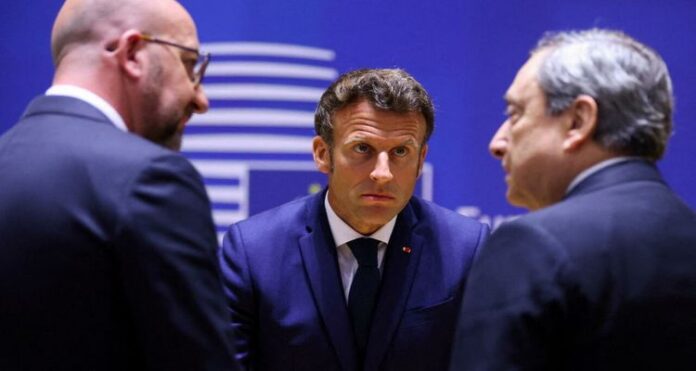| Translate This News In |
|---|
Following a compromise deal with Hungary to punish Moscow for the Ukraine war, EU leaders backed a ban on most Russian oil imports on Monday. The 27-nation bloc has been wrangling for weeks over a proposed total embargo on Russian oil but has been met with staunch opposition from Hungarian Prime Minister Viktor Orban.
After Budapest warned that halting supplies would ruin its economy, EU leaders meeting in Brussels reached a compromise deal to exempt pipeline deliveries from the ban.
“Agreement to prohibit Russian oil exports to the EU. This immediately covers more than two-thirds of Russia’s oil imports, removing a major source of funding for its war machine “During the summit, European Council President Charles Michel tweeted.
“We are putting maximum pressure on Russia to end the war.”
Ursula von der Leyen, the EU’s executive head, stated that the move “will effectively cut around 90% of Russian oil imports to the EU by the end of the year,” as Germany and Poland have agreed to forego deliveries via a pipeline to their territory.
The squabble over the sixth package of sanctions has shaken European unity in the face of the Kremlin’s invasion on Ukraine following five waves of unprecedented economic punishment.
Despite the gap left by Hungary’s opposition, the newest round of sanctions reflects some of the EU’s most damaging measures to date.
Michel stated that the package also included the removal of Russia’s largest bank, Sberbank, from the global SWIFT system, the prohibition of three state broadcasters, and the blacklisting of individuals accused of war crimes.


















